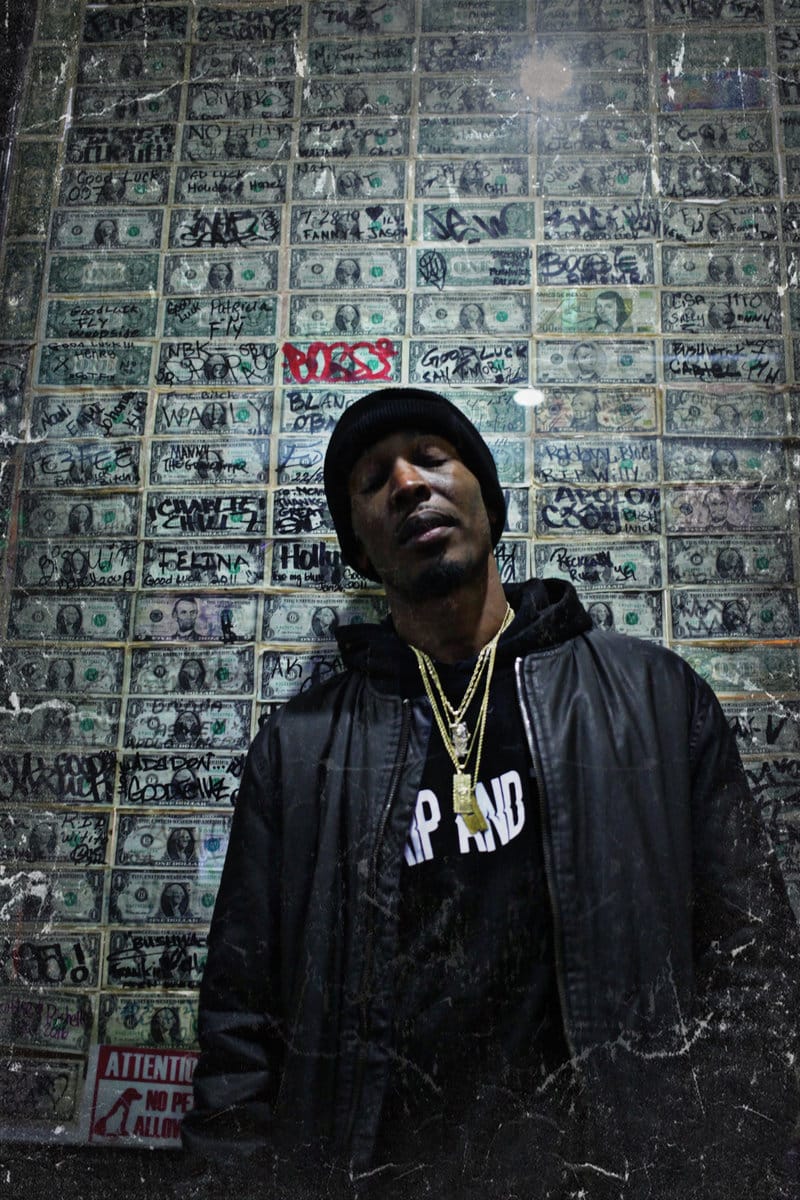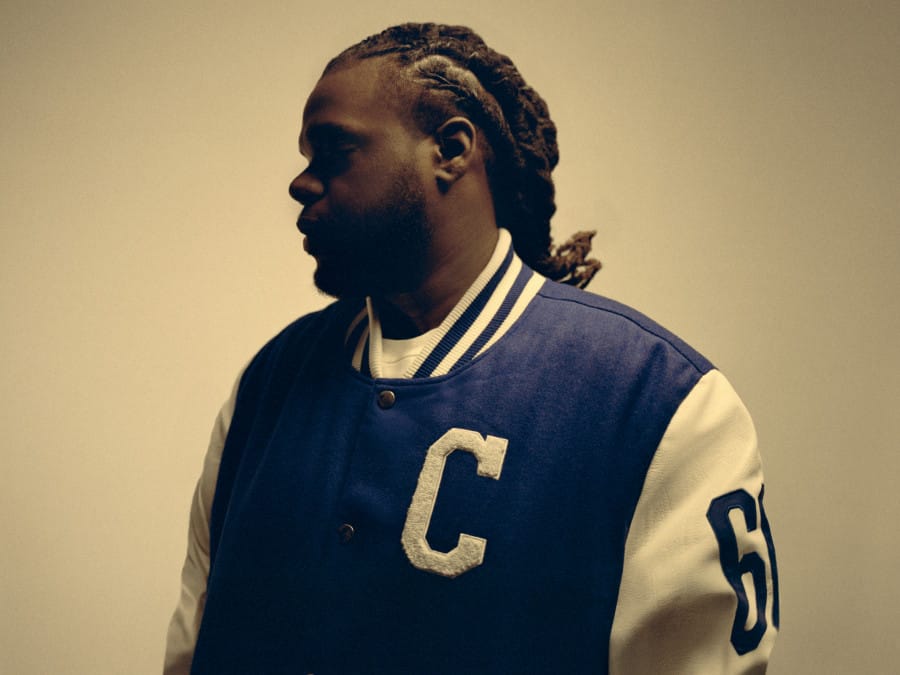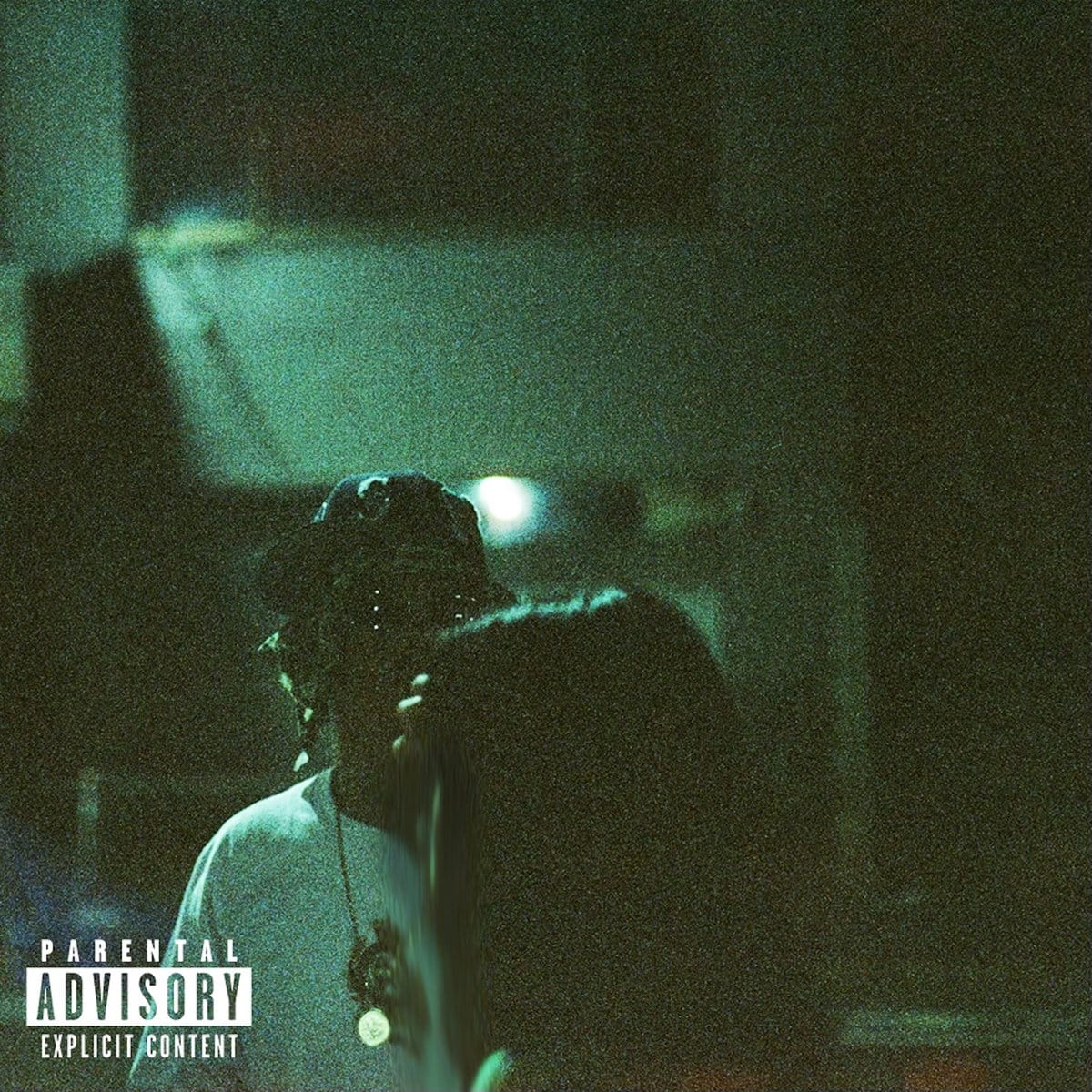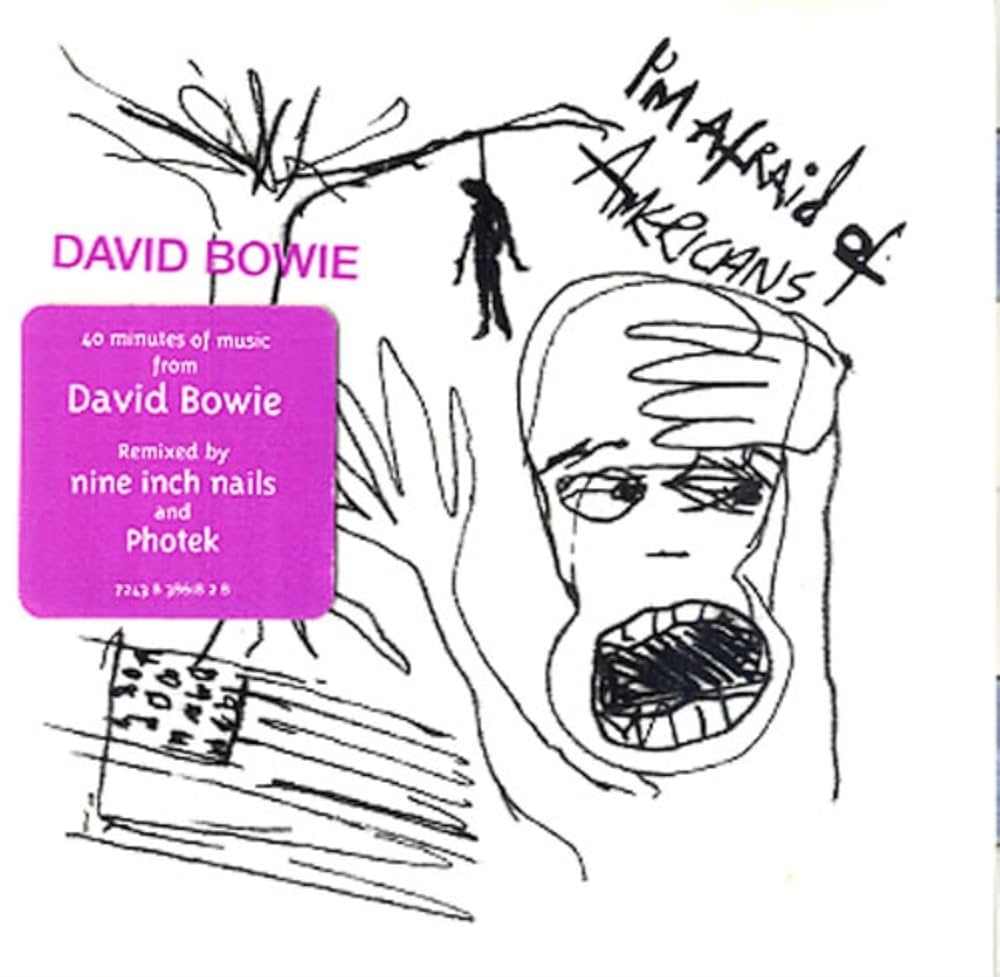Drug Dealers Anonymous 2.0
The NY rapper embodies the essence of Pusha T's seminal 2016 loosie.+reviews of Leikeli47 and The High & Mighty.


Yesterday evening at a private advance listening event for Clipse's soon-to-be-critically-acclaimed Let God Sort Em Out, the room's impressive and assuredly expensive sound system played a song I hadn't heard in a minute: Pusha T's "Drug Dealers Anonymous."
Perhaps most noteworthy for its relatively rare Jay-Z feature, that exalted 2016 loosie from the self-described "album artist" dropped in the years between King Push – Darkest Before Dawn: The Prelude and Daytona. For a lesser artist, the Dahi-produced track would've been the bejeweled centerpiece of a full-length effort. Yet ultimately it didn't chart at Billboard or even make it onto a project at all, ending up a conspicuous footnote from his GOOD Music tenure. Revisiting "Drug Dealers Anonymous" in that particular setting, mere moments before the Brothers Thornton entered to share the new work they'd whipped up in Paris, sparked a realization about how prevalent this particular strain of coke rap has since become.
Though the narco hustle enjoyed a certain and unmistakable ubiquity in hip-hop lyricism during the trap revolution of the 2010s, what Pusha and HOV did on that track stood out–and not just for the exceptional quality of their respective bars. Really, the title itself sums up an as-yet nameless sub-subgenre within coke rap quite perfectly, the metaphor of an addict/recovery group meeting inventively applied to veterans of the hand-to-hand. At the time, Jay was on the back half of his 40s, while his host was soon to depart his 30s. Here, both men, each admittedly and formerly involved in the drug trade, discuss their pasts with communal candor on same song. (The story behind its creation is an all-time great one to boot.)
Like so many Pusha T verses, the authenticity of his opening half comes through with David Mamet type insularity. The way he speaks on the bricks he moved, there's a density to his wordplay, tightly packed like the euphemistic Madonnas in Mazdas. Then when Jay steps up for his part, just seconds after a cleverly weaponized sample of right-wing mouthpiece Tomi Lahren decrying his drug dealer days, he too owns up to his uncut autobiography. He concedes, without hesitation, that he was in the dope game back in the 1980s, daring anyone to hit a pre-AI version of Google for proper citation before crediting the creativity of his accountant. Next, he recounts run-ins with the law and his good fortune at beating cases that could've blocked his billionaire blessings, heavily suggesting that the Feds might still be trying to take him down.
Existing in contrast with countless young men rapping about moving dope in the 2010s, it's the past tense nature of "Drug Dealers Anonymous" that defines it as both a song and a lane. Not unlike the customers they once served, they'll forever be branded as pushermen regardless of changed behavior or how they operate currently. Anyone who's "gone to a meeting" knows that sobriety doesn't negate their status as an addict, and the same principle applies to dealers. And while that particular paradox existed prior to Jay or Push dropping their poignant track, it has become abundant in hip-hop as more and more rappers age.
While numerous examples exist, the Griselda movement contains some of the most obvious cases of contemporary rappers characterized by their prior lives as drug dealers. Core trio Benny The Butcher, Conway The Machine, and Westside Gunn have shared their respective experiences in interviews and, more commonly, in their songs. Later associates like Boldy James, Estee Nack, and Stove God Cooks offer a similar openness about pushing weight that sometimes, for whatever reason, tend to blur the lines between past and present. On his latest album, the Conductor Williams produced Trainspotting, New York's own Rome Streetz makes as clear as possible that those days are behind him. Over the course of about a half hour, he takes the opportunity to set the record straight, emerging from the other end as the genuine article.
At first, you'd be hard pressed to find out much about this aspect of Streetz's former life. On boastful album opener "Andre Agassi" and the subsequent "M*A*S*H.," he's focused more on slamming wack emcees and conniving haters while remarking on his own lucrative come-up in the rap game. But by the third song "Runny Nose," which begins with some light alliteration over eating French toast in France, he's asserting his earlier coke rap bonafides not unlike Pusha T and Jay-Z did on their joint single:
I made eighths whole, turned O's to a money roll
Doubled dough, the hustle left the cutties with a runny nose
I dealt with buyers and suppliers
Seen the powder turn into a solid with thе Pyrex on the fire
The aforementioned past tense is there, but it isn't until later, on the second verse, that Streetz puts a proverbial period on the end of his sentence:
Left the game, ain't looked back, don't care if it miss me
Millions in my future, servin' fiends in my history
That couplet alone shows that his ambitions and his credentials can coexist. It's hardly the only instance on Trainspotting where that occurs, of course. Streetz catches himself reminiscing about serving and supplying on "10 Toes" and "Ricky Bobby," while also recalling when his worldview was limited to the trap house peephole on "Died 1000 Times." Whether galavanting around Greece on "Connie's Revenge" or discovering Japan on "Electric Slide," his repeated references to foreign excursions leaves little doubt that that's all in his rearview now.
Now in his mid-30s, Streetz isn't far off from where Push was, either age-wise or in subject matter terms, circa "Drug Dealers Anonymous." Though success is relative, he's been on an eventful 2020s run that began with high visibility features on Westside Gunn projects like Flygod Is An Awesome God 2 and HWH8 and accelerated considerably with his own 2022 Griselda effort KISS THE RING. Factoring in the purity of his coke rap chat on Trainspotting, he doesn't need to reach the commercial heights or international infamy of Pusha T to earn his spot in the meeting. He's already there, coffee cup in hand, telling his truth to those who know exactly what he's talking about.

The High & Mighty, Sound Of Market
Though Philadelphia’s hip-hop underground currently resides in the more-than-capable hands of the Wrecking Crew, knowing one’s history still very much matters. Sure, Mr. Eon and DJ Mighty Mi spent some visible time a couple hours north during the Eastern Conference x Rawkus era, but as The High & Mighty they rep their hometown with pride on Sound Of Market. The noteworthy duo’s first album in some two decades finds them still doing it for the love of it, galvanizing their throwback bap skillset for modern sonic weaponry fueled by die-hard sports fandom and 420-friendly debauchery. Calling back to a long-quashed beef, "Two High Whiteys" finds Eon weighing the raunchy naughtiness of his past with the mischievous wink-and-nod maturity he now enjoys, while "Two Man Crew" shakes amid the enduring ruggedness of Milo's maximalist turntablism. Old friends return to the fold on several occasions, with indie rap luminaries like Breeze Brewin, Copywrite, and E.C. All-Star Kool Keith adding to this veritable rhyme fest. Cage steps out of the shadows to shit on emo rap kids and anyone else in his way on “Most In-Outs,” as close to a Smut Peddlers reunion as we’ll likely ever get. Yet this is not some dusty time capsule, evidenced by Your Old Droog’s verbal darts and Alchemist’s dramatic beat on “The Rose Bowl.
Leikeli47, Lei keli ft 47 / For Promotional Use Only
Even for an elusive, balaclava-clad rap enigma, Leikeli47 has always been squirmy as an artist. Either unwilling or unable to conform to the marketing checklist strictures of the major label system, the Brooklyn artist's releases rarely went where one expected them to go. Her decision to unmask at the start of this, her independent stage, perhaps means we're seeing the clearest version of her vision on the deliberately deconstructed Lei keli ft 47 / For Promotional Use Only. Nowhere is this more evident than on "different person," a declaration of resilience where R&B future bass and skittish breakbeats dance around her frenetic yet polished delivery. Via the clattering crashout of "passenger 47," the technoid funk of "starlight," and the cavernous crush of "stella's groove," she flexes musical muscles even her biggest fans haven't previously seen. Shrewdly lyrical, she stacks up sweet metaphorical scoops to send up the industry and slay the fame monster on the icy speaker-ratter "soft serve," later fortifying her pen-as-sword over the severed '70s soul sensations of closer "hnic."


Three new tracks to snack on...
Kimmortal, "I Just Wanna Know"
Devine Carama & Amadeus360, "Years To Build"
Doseone & Steel Tipped Dove, "Dial Up (feat. M.Sayyid)"





